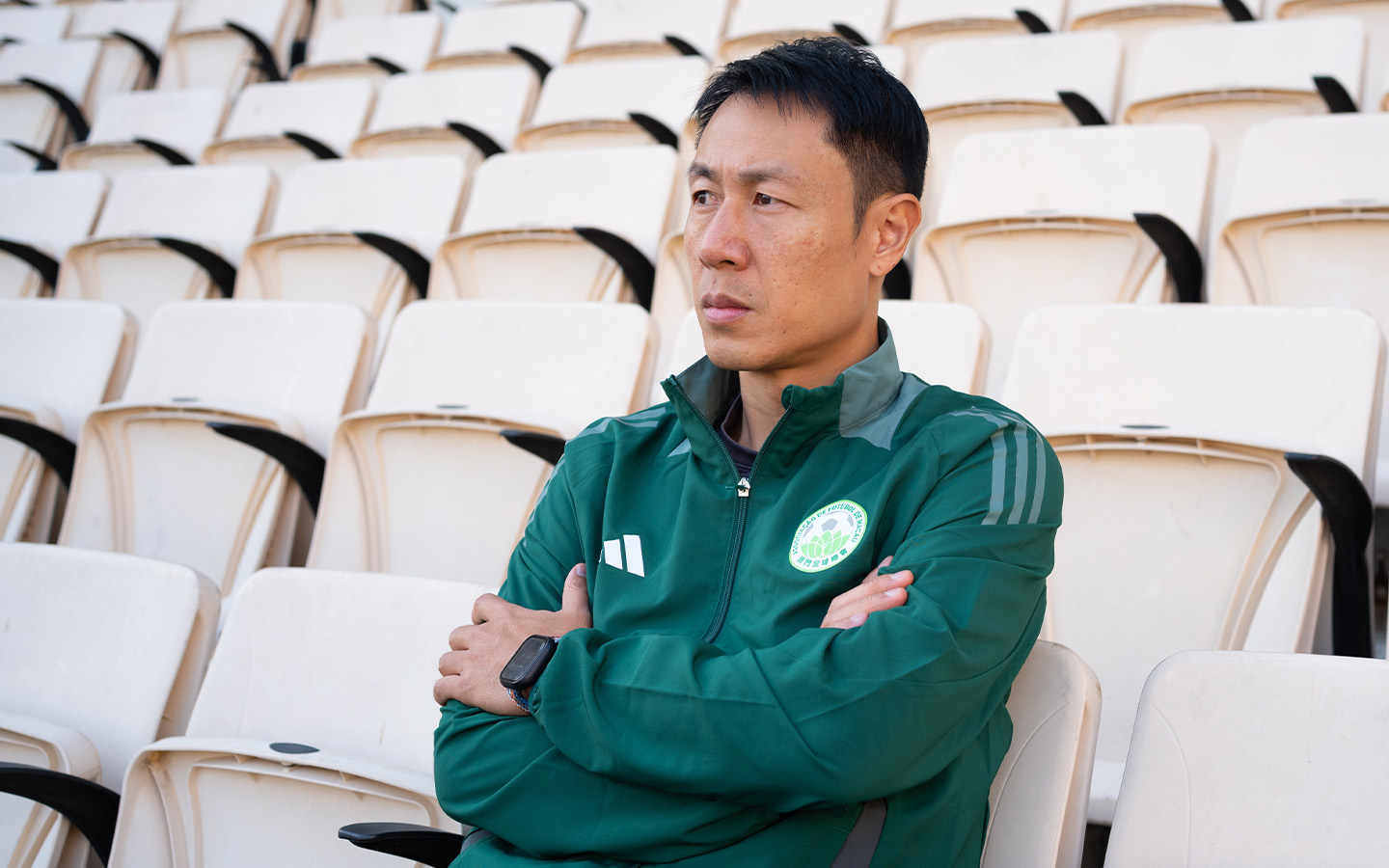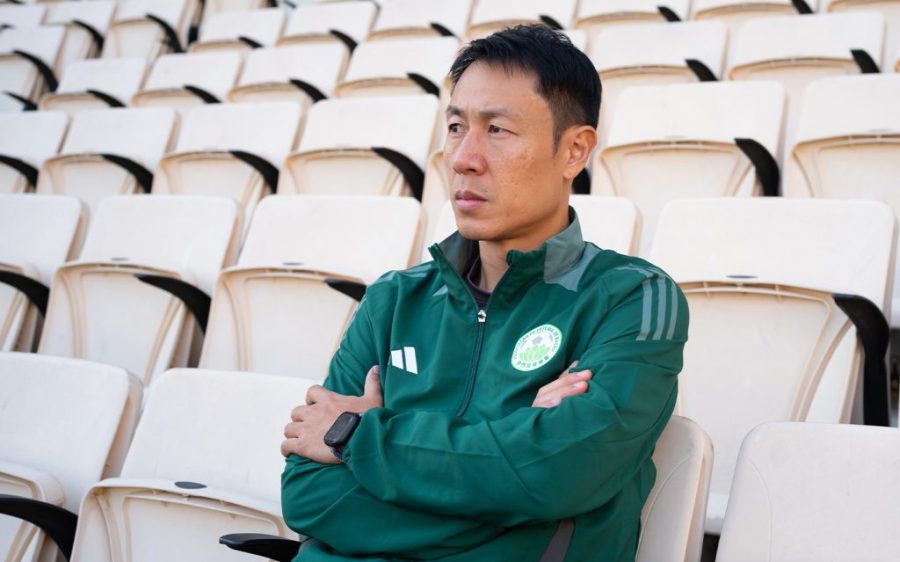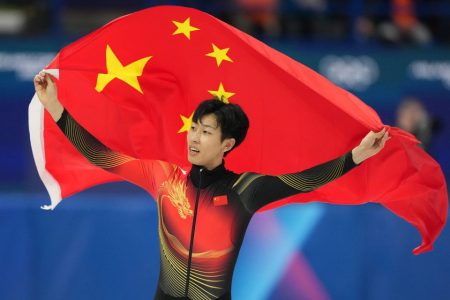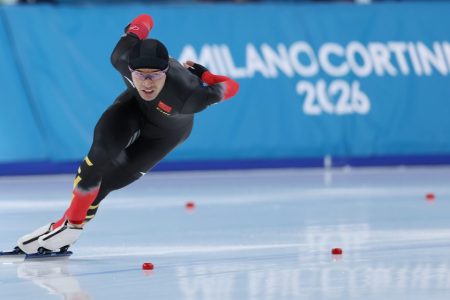Macao’s new men’s football coach, Kenneth Kwok, is aware that he has a big job to do. His predecessor, Lázaro Oliveira, who was at the helm for four years, infamously said that Macao had “fallen to the bottom of Asian football.”
The SAR team is now at a lowly 193rd in the FIFA men’s rankings, below war-ravaged South Sudan (170), the tiny Cook Islands (190), whose population of 15,000 is dwarfed by Macao’s 704,000 people, and desperately impoverished Liberia (145), where a third of the population lives below the “extreme international poverty rate” of US$2.15 a day. In East Asia, only Timor-Leste (196) ranks lower than Macao.
That means the only way is up for Kwok, a Hong Kong sports professional who formerly managed Hong Kong Premier League clubs like Yuen Long, Tai Po, Pegasus, and Sham Shui Po. In 2022, he coached Tainan Steel, league champions on the island of Taiwan and in between has helped manage the Hong Kong U-20 and U-23 sides. He was also the assistant coach for the Hong Kong first team (currently at 156 in the FIFA table).
[See more: What’s next for football in Macao?]
Having to do without foreign players – as a result of a FIFA decision back in August – means that Kwok must focus on growing the local side, right from the youth team to the first team. He also hopes to lower the average age of players in the next three years.
Kenneth Kwok took time out from his schedule to talk to Macao News about his plans, his coaching style and why he decided to take the challenging job in Macao.
What got you into sports growing up?
My father was a key inspiration for me. He was a professional footballer and always encouraged me to participate in sports. My mother was a semi-professional tennis player, so I eventually started playing both football and tennis. By the time I was 14, I was ranked in the top five in Hong Kong at the junior level for tennis. I later realised football was my true passion. Tennis felt too individual, it was either singles or doubles, but football was a team sport. I loved being with a group.
When did you first get into coaching?
My first experience came when I started coaching juniors at the Hong Kong Football Club (HKFC). I coached the U-15 team to a league championship, and that’s when Kim Pan-gon, the Hong Kong football team head coach at the time, noticed me. I was surprised when he approached me and said he wanted me to join the Hong Kong team. Not at the senior level, but to help with the juniors. He saw potential in me as a passionate coach who could communicate well in English, and he thought I could contribute to Hong Kong’s youth football development. This marked the start of my deeper involvement in coaching.
In 2012, my father passed away. His passing made me reflect on his football legacy and motivated me to take my coaching career more seriously. He had been a player, a coach, and a PE teacher, and was well-respected in Hong Kong football. I wanted to build upon that legacy. So I quit my job and decided to pursue coaching full-time.
[See more: ‘I would like to build bridges.’ Meet Taylor Gomes, Macao’s first and only FIFA-licensed football agent]
In 2017, I got my first experience as a senior-level head coach when I managed the Hong Kong-Macao Interport tournament. Pan-gon entrusted me with the responsibility and I was fortunate to lead Hong Kong to a 4-0 victory. It was a special moment for me because it was my first senior-level coaching success. That same year, I was also appointed interim coach for the Hong Kong-Guangdong Cup, another annual tournament. Again, with some luck, we won the championship.
In 2019, I achieved one of the biggest victories of my career. I managed a younger Hong Kong team – mainly under-23 players – in the Hong Kong-Guangdong Cup. After losing the first leg 2-1, we came back to win 4-0 in the second leg. It was the biggest victory in the history of the tournament and a milestone moment for me.
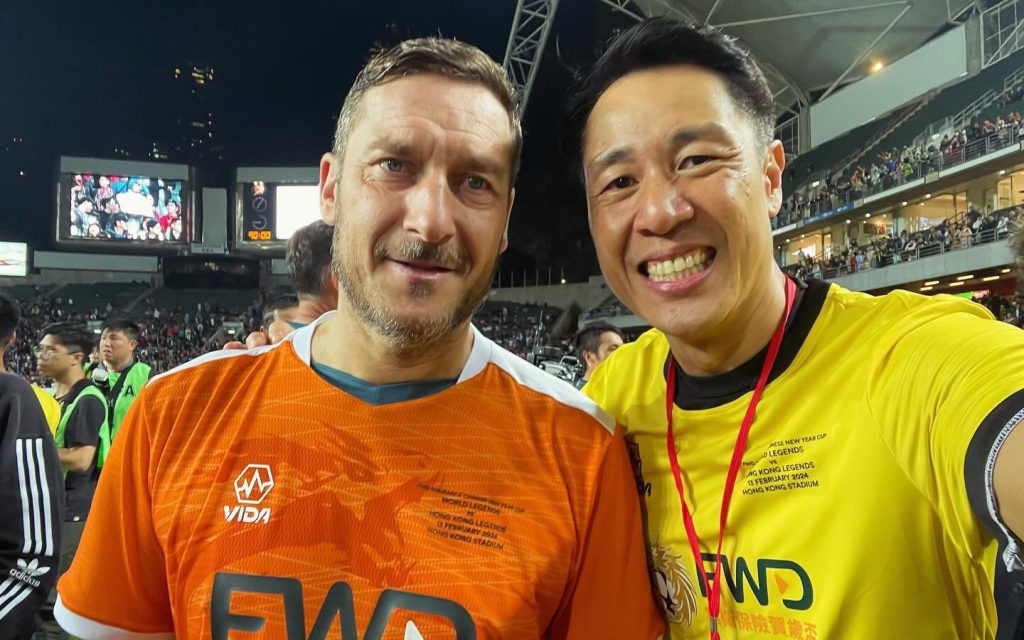
What does coaching make you feel?
For me, coaching gives life meaning. Instead of going to an office at 9 am and waiting until 5 pm to leave, I wanted to do something more fulfilling. That’s why I quit my previous job and pursued this path. In many ways, coaching is like teaching. As coaches, we aim to change lives, give people direction and a positive mindset, and help them become better individuals.
What made you decide to become the Macao football team’s head coach?
I’ve always loved the idea of managing [an SAR] side. I’ve served as interim head coach for the Hong Kong representative team, and I’ve also managed Hong Kong Premier League clubs. But I’ve always found [SAR] team coaching more meaningful.
There’s an honour that comes with representing a place. When I coached Hong Kong, wearing the badge on my chest made me feel proud. Now, here in Macao, sitting in the FA office and wearing the [SAR] team jersey, I feel proud to represent Macao. It’s a powerful identity, and as a coach, I want to instil that same pride in my players. I want them to feel proud every time they represent Macao.
How can Macao football improve?
It’s been difficult for Macao football because it’s still at a semi-professional level. No full-time players, or clubs offering professional salaries, and there is a lack of professional infrastructure that makes it challenging for the [SAR] team. The players come from local clubs, and when those clubs aren’t professional, it reflects on the [SAR] team’s performance.
But Macao does have talented players. The problem is they don’t have a clear pathway to play professionally. In the past, players like Domingos Chan Tat Sun and Leong Ka Hang managed to play professionally, with Leong even becoming one of the best players from Macao. We need a new generation to step up and follow in their footsteps.
[See more: Nine questions for Macao’s top centre forward Leong Ka Hang]
At the moment, my focus is on giving the players a professional mindset. Even if they’re not training full-time or earning professional salaries, they need to act like professional players. This means taking care of their sleep, nutrition and fitness – basically living like professionals.
There’s a big difference between amateur, semi-professional and professional players. Amateur players train once a week, play a match and then it’s done. Semi-professional players might not be paid full-time, but they still act professionally in their approach. That’s the mindset I’m trying to bring to the Macao players.
Looking at other Asian teams like Cambodia, Brunei, Myanmar, and Vietnam – they’ve transitioned from amateur to semi-professional and are now reaching higher levels. I believe Macao can do the same. It starts with daily habits, building consistency week by week, and eventually playing more FIFA-sanctioned matches each year to improve performance.
Training seems to be another challenge for Macao football. How do you address this issue?
Training is one of the biggest challenges I faced when I arrived in Macao. To prepare for the Macao-Guangdong Cup and the EAFF tournament in Hong Kong, I only had two to three training sessions per week. That’s far from ideal.
The issue lies in the lack of training venues. The pitches are owned by the government, and many of them are under maintenance or shared with league and university games. It’s difficult to secure enough training time.
I’ve had to be creative. If players are involved in university or club games, I ensure they play with full intensity. For those not playing, I make sure they run and keep their fitness levels up. It’s not perfect, but I make sure they stay physically prepared no matter the circumstances.
In the long term, I hope the government can provide more venues and resources. For Macao to reach a semi-professional level, players need to train at least every other day. At the professional level, teams train three times every two days – once on one day, and twice on the other. That’s the standard I’d love to see here in the future.
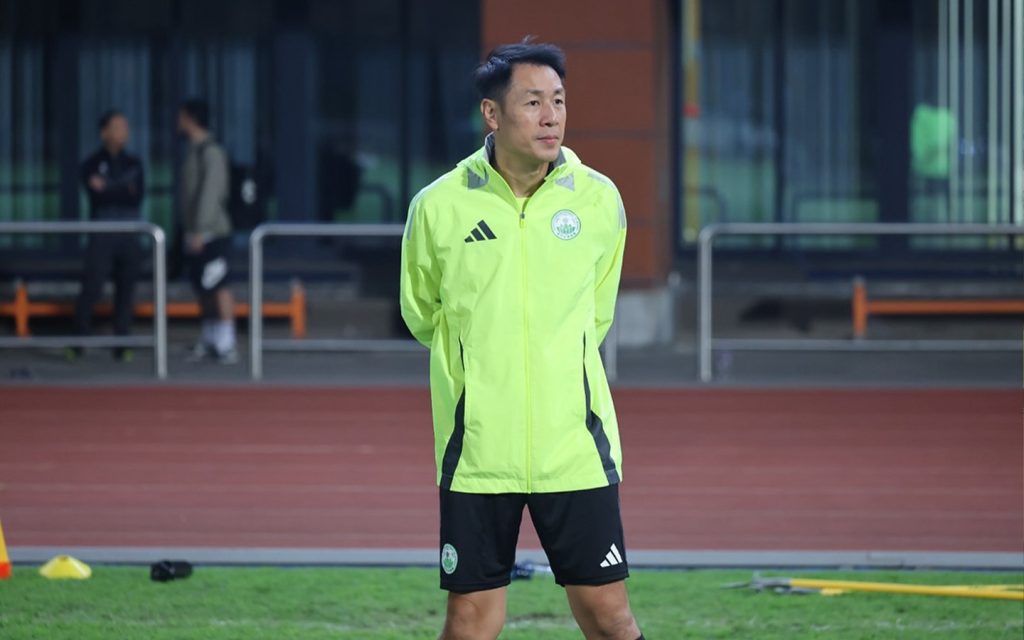
Many young players in Macao seem to think they need to leave town or even quit the sport for better opportunities. What are your thoughts on that?
Yes, I’ve noticed this too. A lot of young players in Macao, particularly after finishing university, don’t stay in high-level football. They look for stable jobs, which is completely normal. Many of them work in casinos, hotels or government departments. They need to earn a living, but I believe some of these players should be pursuing professional football careers instead.
One of the challenges is the mindset that Europe is the only place to succeed. People often talk about sending players to Spain or Portugal, but I’ve seen the reality and many players who go to Europe don’t get game time. They only train without playing formal matches because they can’t secure visas. Without match experience, development is limited.
[See more: FIFA says foreign nationals can’t play football for the Macao team]
I believe the solution lies closer to home. Instead of Europe, we should focus on other Asian places like China, Hong Kong, Thailand or Vietnam. These countries have shown progress in football, and they offer great opportunities for players to grow. My goal here in Macao is to help create pathways for players to turn professional, whether locally or in Asia. With more professional players, the team will naturally improve.
How would you describe your coaching style and tactics?
The Hong Kong media nicknamed me “Hong Kong Klopp,” after [former Liverpool manager] Jürgen Klopp, which surprised me. But I think it’s because of my coaching style. I’m a very passionate coach that tries to act like the 12th player on the pitch. I want my players to feel that I’m with them every step of the way.
I emphasise high pressing, but high pressing requires a lot of physical effort, so I’m constantly pushing my players from the sidelines. Interacting with fans during matches is also something I like doing. When the players are tired or demotivated, I turn to the fans and encourage them to cheer louder. Football is not just a sport, it’s a performance. The energy from the fans directly impacts the players. When the crowd cheers, the players run harder and fight more.
Here in Macao, it’s challenging to implement a full high-pressing style, so I’ve adapted to focus more on counter-pressing and tight defence. My priority is to organise the defence and ensure we’re difficult to break down. Offensively, I focus on efficiency rather than possession. It’s not about how much of the ball we have, but how we use it. I want the players to create chances, take more shots, and score from limited opportunities.
I emphasise discipline and mental toughness. Even if our players can’t match professionals physically, they can still fight for 90 minutes. They must feel proud to represent Macao and know the fans are behind them.
